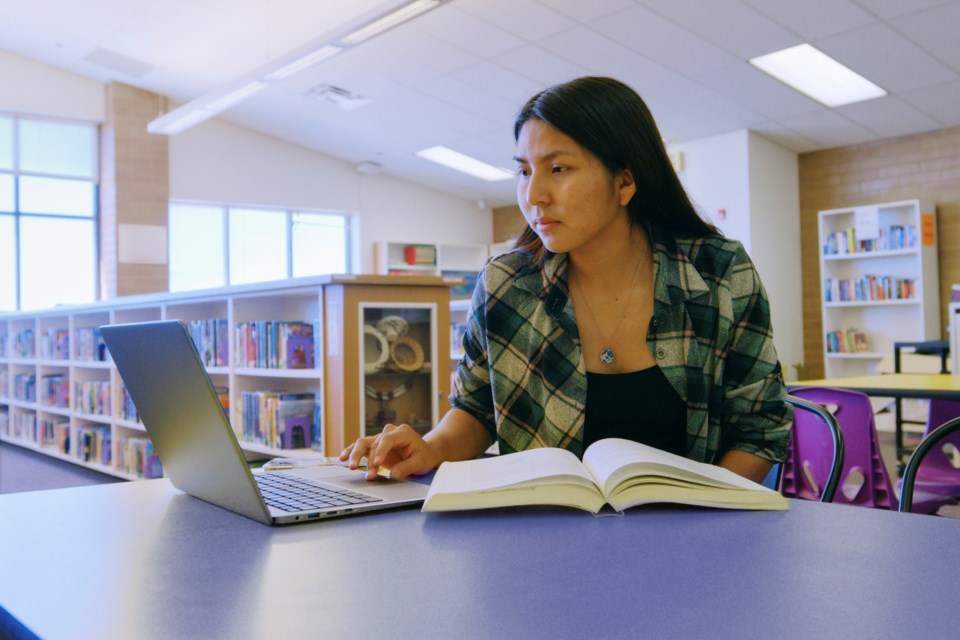Indigenous youth say they still face systemic barriers in their academic and professional careers, although there have been improvements, according to a new survey from accounting firm Deloitte.
The survey, conducted as the second part of the company’s Indigenous Youth Leaders on Reconciliation series, focused on education, the workplace and the transition between the two.
It involved speaking with more than 20 young Indigenous people who participated in last year’s Indigenous Youth Advocacy Week, which was hosted by the reconciliation advocacy group Canadian Roots Exchange.
Four participants were selected for follow-up interviews. The information from the surveys was supplemented by data from Statistics Canada and industry reconciliation specialists, including those at Deloitte.
Indigenous enrollment in post-secondary institutions increased by 85 per cent from 2011 to 2021, but Indigenous post-secondary students are less likely to complete their degree than the non-Indigenous population, according to the statistics compiled in the report. While 11 per cent of Indigenous students went on to graduate in 2021, 35 per cent of non-Indigenous did.
Many students surveyed said they felt they didn’t belong at colleges and universities. One study participant noted that support for Indigenous students in post-secondary education “diminishes over time.”
“Why do we have to prove ourselves to get respect from others?” asked another participant.
Indigenous youth are 65 per cent less likely to find employment in the professional and financial services sector than their non-Indigenous counterparts, the study notes.
When Indigenous youth do enter the workplace, the study found they’re likely to face various forms of discrimination, including microaggressions, having their ideas ignored, not being assigned to favourable projects and being subject to stereotypes.
Dean Janvier, a Deloitte Indigenous director overseeing the Prairies and B.C., told Alberta Native News that youth are far too often left out of discussions regarding reconciliation.
“It would be very difficult to measure reconciliation, because reconciliation is a process, soo it’s going to be ongoing for some time to come,” Janvier cautioned. But the report’s purpose was to gather Indigenous youth leaders’ perceptions of progress so that it can be “amplified” for government and corporate leaders to hear.
Participants agreed that many companies’ policies, programming and funding for Indigenous employees are a good first step, but they’re asking decision-makers “to go deeper now” and make these programs more accessible, Janvier added.
“They asked us leaders to go back and do our homework, and review those policies, those programs, those funding mechanisms and see what ways we can make them more friendly. more welcoming or culturally appropriate, more acceptable [and] to decolonize them,” he said.
This also applies to Deloitte, which launched corporate Canada’s first Reconciliation Action Plan in 2020.
“We still have some of our own homework to do and improvements to make in these areas. But we’re committed to working with our employees and to make those adjustments as we go forward to create better outcomes,” Janvier said.
The report concludes with nine recommendations, including increasing services and financial support for Indigenous students of all ages, offering paid Indigenous-focused job placements for those entering the workforce, and for employers to establish “targeted and meaningful professional development opportunities” for Indigenous employees.



